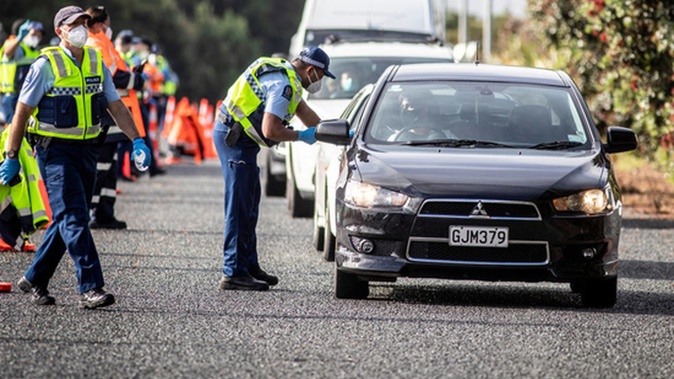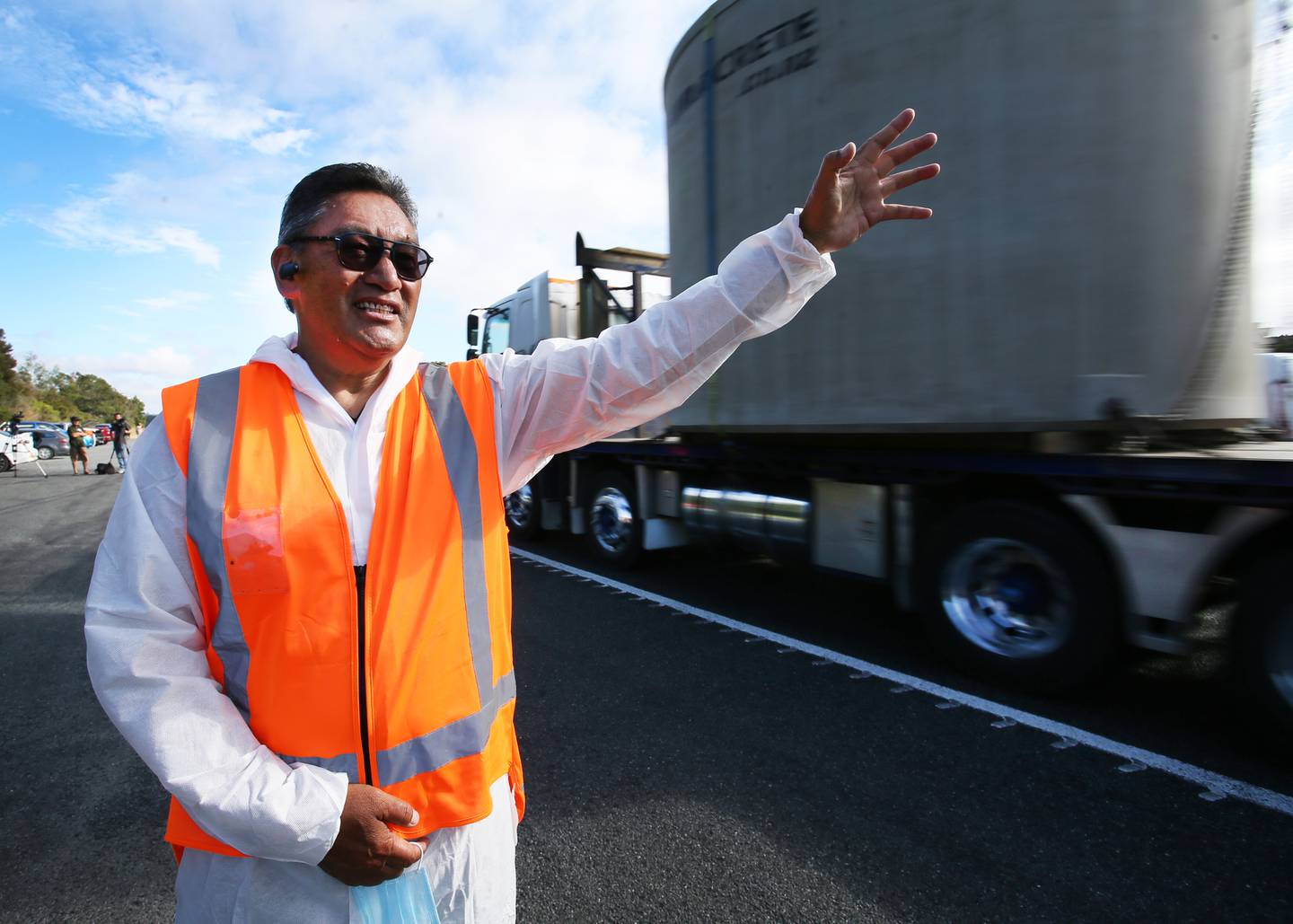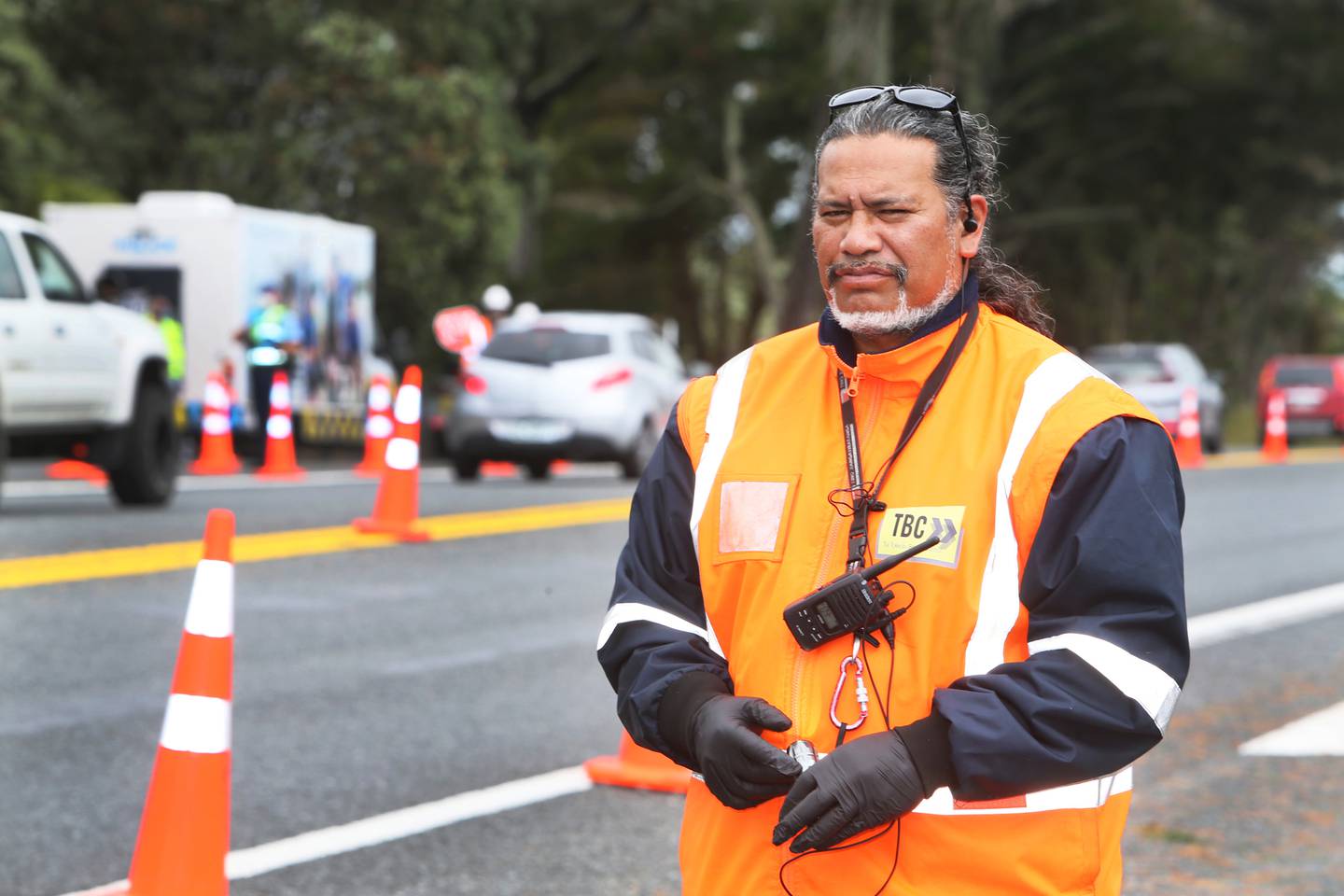
Activist and former Māori Party MP Hone Harawira has lashed out at New Zealand Police over the handling of Northland Covid-19 checkpoints, characterising law enforcement's decision to vet volunteers as "racist to the core".
Iwi-led Tai Tokerau Border Control has been working alongside police since Wednesday, when Auckland's border opened after nearly four months of lockdown to travellers with proof of Covid-19 vaccination or a recent negative test.
Police have characterised co-operation with the volunteers as positive and "extremely helpful". Speaking to NewstalkZB today, Tai Tokerau Border Control regional co-ordinator Reuben Taipari seemed to agree, describing the endeavour over the past week as successful.
But in a blistering statement released to media Monday afternoon, Harawira focussed on what he said was a decision by police to "blindspot" the Northland volunteers at the last minute.
"Over the past few months, Tai Tokerau Border Control has tried to be balanced in the media and positive about its working relationship with the police, but when racism rears its ugly head we need to speak up," Harawira said, adding that "Māori and the police have never been natural partners".
Harawira said that while police and iwi seem to have made strides working together over the past 20 months of the pandemic, it was "gutting" to realise with about 20 minutes notice before the checkpoint opened that the majority of volunteers had been rejected by police because they had not passed a vetting process.

Hone Harawira stands at a previous Te Tai Tokerau checkpoint on State Highway 1 south of Kawakawa in January 2021. Photo / Tania Whyte
Responding to the critique, Northland District Commander Superintendent Tony Hill noted that there was a short timeframe to establish a vetting process but that it was vital to the endeavour.
"The Covid-19 Public Health Response Act required all of those working on the checkpoint line alongside police to be vetted," he said. "Those who did not pass vetting were able to work as TBC volunteers in other support roles and were not interacting with the public."
Police have declined to comment on the vetting process further, citing privacy concerns.
Speaking to RNZ last week, Harawira described the volunteers as an eclectic mix ranging from doctors and lawyers to gang members.
On Monday, he described the vetting process as "based on supposition and innuendo" and in violation of Treaty commitments. The decisions are biased, bigoted and unsustainable, he argued, if there are no set criteria.
"It stopped a fireman, a school chairperson, a former MP, marae committee members, a teacher, and health provider staff from volunteering (biased, racist decision-making with no basis in fact)," Harawira wrote.
"It saw one crew who had been nominated by their hapū, get turned away and have to return home (no consideration and no respect for local iwi mana, or processes).
"It is a process that is racist to the core."
He later added: "Some things change, but clearly, racism in police decision-making is not one of them."
Hawawira's statement came one day after a police press release stating authorities were "very pleased" with how the Northland checkpoints have operated.
"Only a very small number of vehicles have been turned away and we want to thank locals and those travelling outside the region for their cooperation, patience and compliance with the restrictions in place under the Covid-19 Protection Framework (traffic light system)," the Sunday statement said.
Starting today, police will now transition from the two fixed checkpoints on State Highway 1 and State Highway 12 to roving patrols and spot checkpoints.
"It's important that we support our most at-risk communities and help keep them safe by monitoring ongoing compliance around the region," Hill said in the Sunday statement.
He thanked Te Tai Tokerau Border Control and iwi for their hard work at the checkpoints and said police will continue to work with them.
"The support of our partners has been extremely helpful in helping to keep our communities safe and we are grateful for their ongoing support," he said.

Reuben Taipari, regional co-ordinator for Te Tai Tokerau border control, stands at the Uretiti border on 15 December 2021. Photo / Tania Whyte
Taipari, the Tai Tokerau Border Control regional co-ordinator, also spoke positively today about what the partnership achieved.
"I'm satisfied. We surpassed our expectations," he told Newstalk ZB. "We conducted a checkpoint that was safe, and 99 per cent of our community and all of the visitors that travelled through our checkpoint were very positive."
There was some congestion, which he blamed on Wellington bureaucracy, and volunteers didn't get to stop every car as initially planned, he acknowledged. But the campaign successfully got the word out there about what was expected, Taipari said.
He gave as an example the niece of one volunteer who got a test as she prepared to cross the border, knowing there was a good chance she'd be stopped. She ended up testing positive and ultimately decided not to put her whānau and community at risk by travelling from Auckland, he said.
About 100 cars out of 20,000 were turned back by police and the volunteers.
"The campaign that we drove out there was a successful one," Taipari said. "We're going to stay in there and work with police right through the summer, whether it's these new scenarios of mobile patrols or whatever it is that's out there."
Take your Radio, Podcasts and Music with you









